QuestionQUESTION: A few years ago, I began rescuing reptiles and have become quite experienced in their care. My vet recently gave me a malnourished and sickly leopard gecko that was no longer wanted by the previous owners; thank goodness. With proper medication and supplemental feeding with a product called "carnivore care", this little guy is now fat, happy and has gone through 2 major sheds. I now have a question about UV requirements. This guy gets regular supplementation of RepCal with Vitamin D3. Since geckos are nocturnal, I would assume that UV light is not needed. In their natural environment, they do not come out into the daylight, so why would it be required in a man made habitat? I get conflicting answers from vets and reptile stores. I understand that vitamin D is manufactured in the skin when UV light is present. However when you are giving calcium and D3 supplementation, isn't this enough for a nocturnal lizard. Anyway, when any bright light is put overhead, he squints and quickly retreats to a dark hiding place. As it stands, he is most comfortable with a ceramic heater rather than a light bulb for heat source. His tank is located away from bright daylight, but he still is exposed to the natural rhythm of day and night. True to nocturnal creatures, he never comes out during the day. Your thoughts about UV lighting would be greatly appreciated. Thank you.
ANSWER: Hello Audrey,
Congratulations that you have a fat & happy leopard gecko. That seems like a rarity anymore.
The carnivore care is an excellent product I do agree.
Leopard geckos as do other nocturnal reptiles, can manufacture D3 in their livers without the direct sunlight. However, it has been shown that they "can" benefit from low levels of UVB. If you did decide to use a UVB source, you could use a Reptisun 5 or a Reptiglo 2, but stay away from Zilla lights.
What type of basking light did you use that made him squint?
If he does not seem to like a light during the day, then you don't h ave to use one as long as he has light in the room to help him regulate a day & night cycle. Using a ceramic heat emitter along with an undertank heater should provide him with enough heating. He needs a hot spot of around 88-90 to help digest his food.
He should be fine with no UVB light however. Getting a low output one would not hurt, but I would say the majority of keepers do not use a UVB source for them. I feel that most reptiles benefit from some UVB if anything to just help stimulate activity.
Do you have any pictures of him?
Tracie
---------- FOLLOW-UP ----------
QUESTION: Regarding the UV lighting, his habitat came with a compact florescent style Reptisun 10.0 which I know is better suited for desert dwellers such as bearded dragons. I can buy a lower UV emitting bulb if you think that would help. With my bearded dragon, I have always used the florescent TUBE rather than the compact bulb because I had heard that the compact does not emit UV light as well as the tube. Is this correct?
He does have a hot spot and the ceramic heater is sufficient right now for creating adequate warmth. Here in Kansas, it has remained in the 80's for daytime highs. However, I do have an under tank heater to use when the temps start to dip and the nights cool off.
Perhaps he might squint because when he came to me, he had several layers of retained shed over both eyes. They told me he had corneal scarring and needed syringe fed since he could not see to eat. Lo and behold, with an adequately moist wet hide and a good diet, he went through a successful full shed 1 week into my care and the retained shed on his eyes came off...revealing beautiful and fully functional eyes.There had been some clouding of the eyes that got progressively clearer with each shed. However, he was now able to find his own food. Since he had been so underweight, I continued the carnivore care at a rate of 1 cc/day and supplemented with 2 wax worms to build up his fat stores. The problem I have now is that he likes wax worms so much (I know they are fatty junk food for most part) that he rejects mealworms and crickets. I need to wean him off of the carnivore care completely. Are there any other live foods that you could recommend?
Again, that you for all of your help. I will send you a picture shortly.
Regards,
Audrey
AnswerHello Audrey,
I feel having some lower UVB shows benefit, even with geckos, yes.
The compact/coil lights have been shown to be hazardous to their health & their eyes. Specifically the Reptisun 10 tube bulb emitted hazardous low wavelength frequency of UVB light which endangers the health of the reptile. The compacts I feel do not emit near enough for bearded dragons.
The issue with the eyes is probably most likely why he squints. A low light should be fine for him though along with the ceramic heat emitter.
The Reptisun 5 would be fine for him, or lower such as the Reptiglo 2. Use the tube bulb & not the compact/coil light.
It sounds like you are equipped & ready for when the temperatures start to fall.
That is amazing, great job! His poor eyes, I am surprised that he did not lose his sight from a bacterial infection. At least he can find his food now!
That will happen, they will get addicted to the waxies! You could try the phoenix worms or butter worms, they are both nutritious.
Great, I am looking forward to seeing some pictures of him!
Tracie

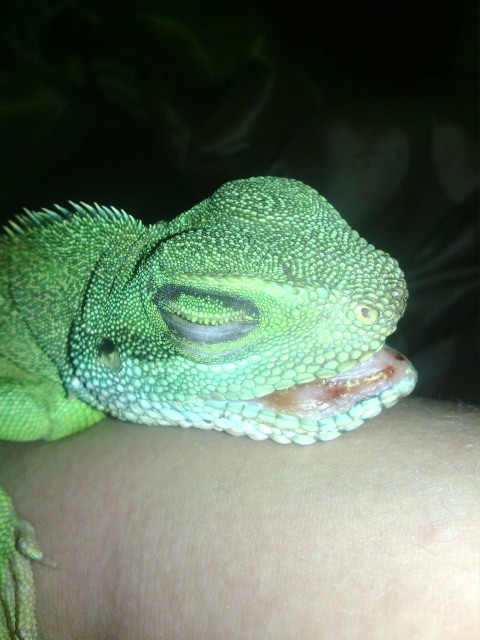 urgent heath question
Question
godzilla godzilla
My sons water d
urgent heath question
Question
godzilla godzilla
My sons water d
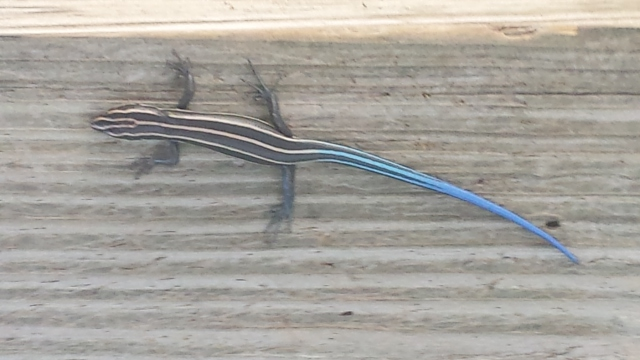 identify lizard please
Question
Waynesboro, tn
could you please tell me
identify lizard please
Question
Waynesboro, tn
could you please tell me
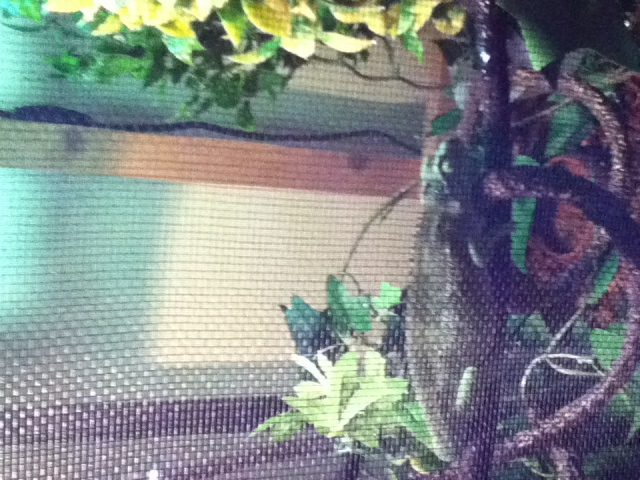 Could it be my UVB bulb?
QuestionQUESTION: Hi. I have a 13 month old Yellow Cres
Could it be my UVB bulb?
QuestionQUESTION: Hi. I have a 13 month old Yellow Cres
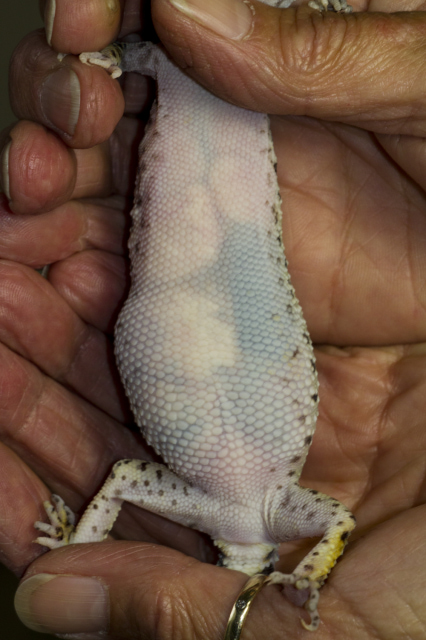 Sick Leoaprd gecko
Question
Belly photo
species - leopard gecko.
h
Sick Leoaprd gecko
Question
Belly photo
species - leopard gecko.
h
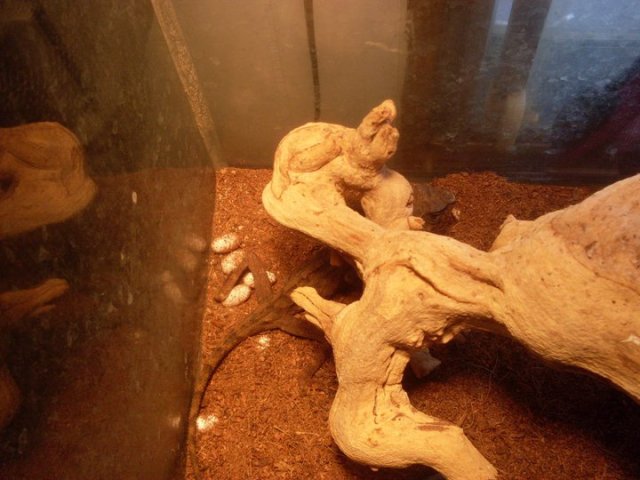 my mhd laid eggs!
Question
lizards eggs
hi my husband just recently purc
my mhd laid eggs!
Question
lizards eggs
hi my husband just recently purc